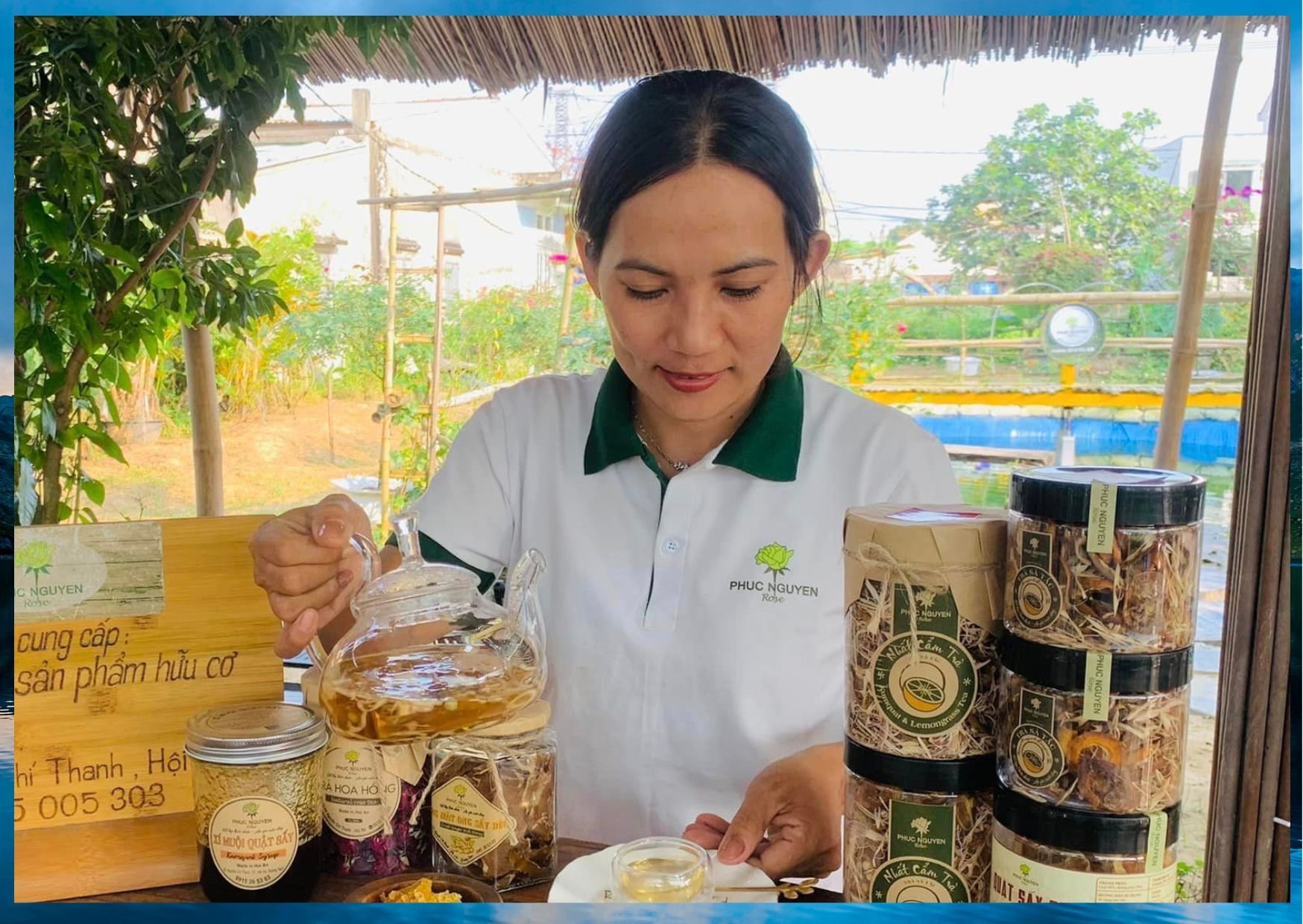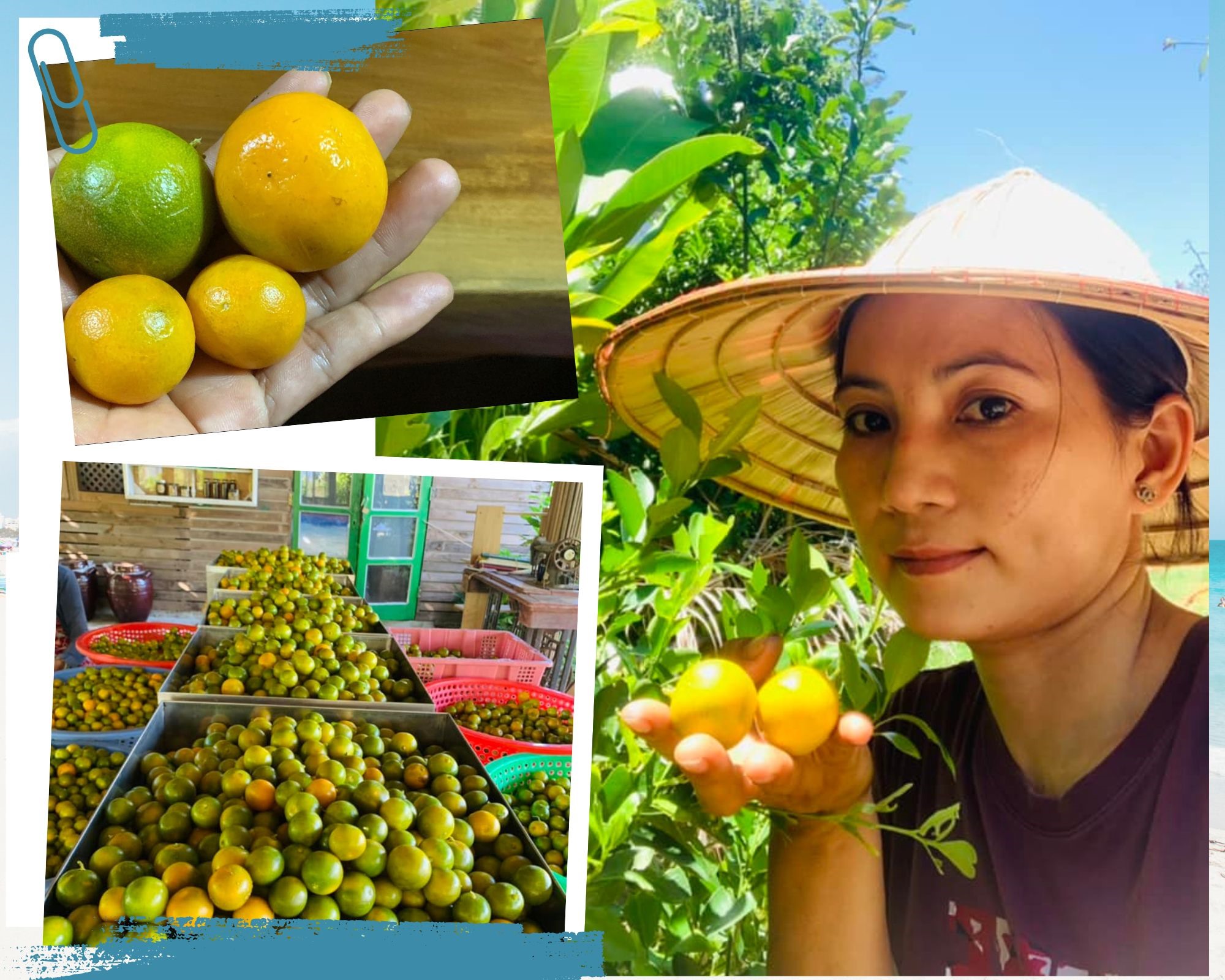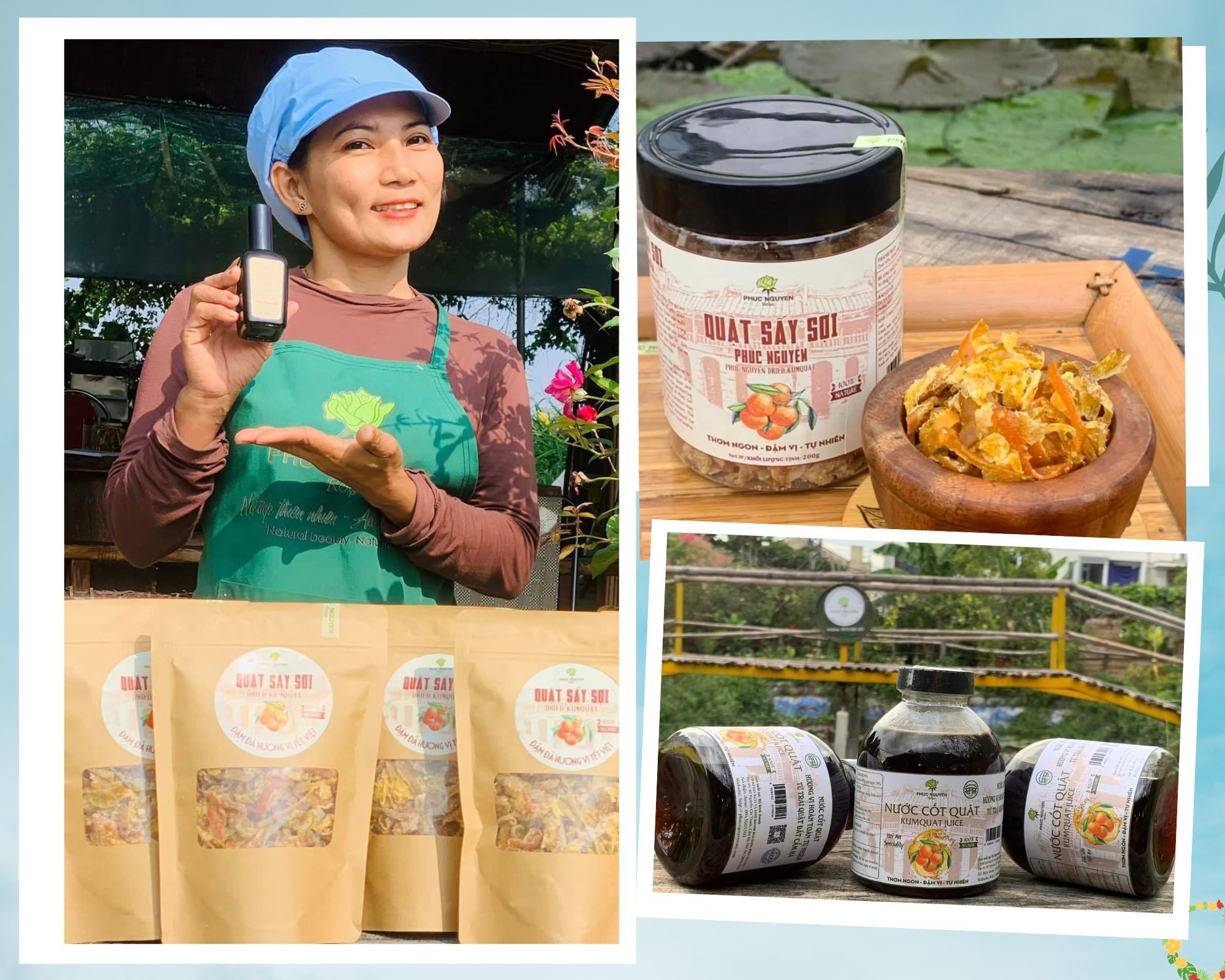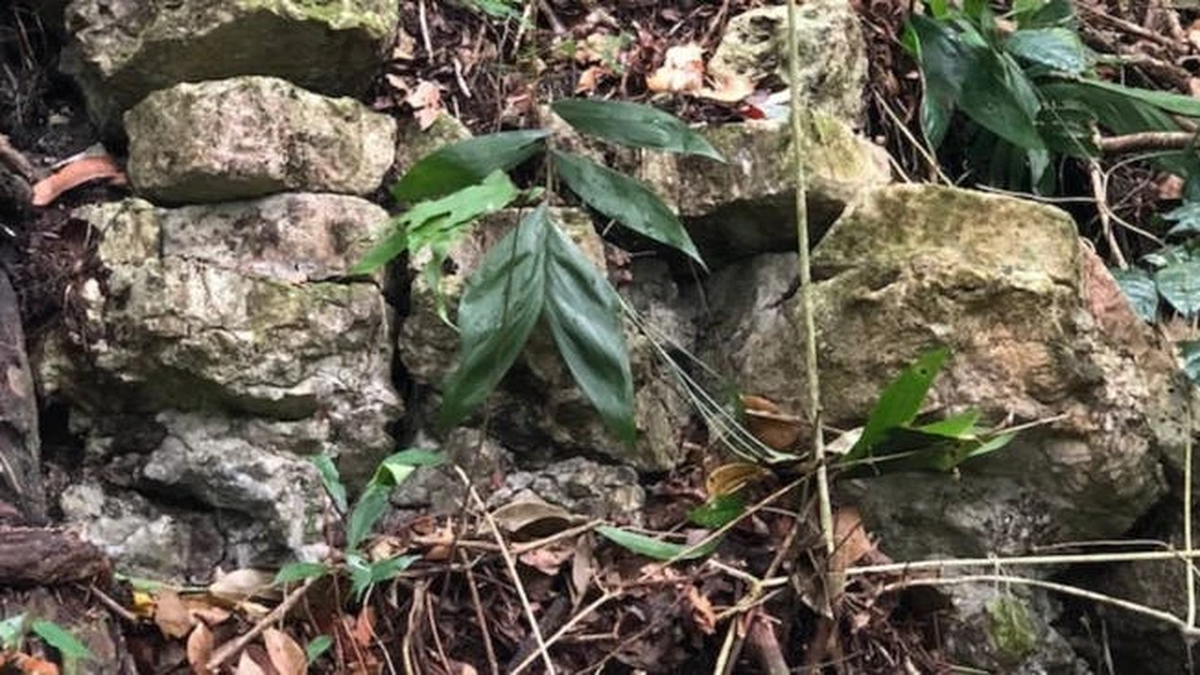(QNO) - From kumquats grown by local farmers, Ms. Nguyen Thi Phuc (Cam Ha commune, Hoi An city) has developed organic products such as tea, wine, syrup and especially kumquat jam which has become a 3-star OCOP product.

Start a business with kumquat jam products
The COVID-19 pandemic has affected the economy , many small businesses are struggling and the rose production facility Phuc Nguyen Rose is no exception. Rose gardens, deserted cafes, and few orders made the passionate entrepreneur Nguyen Thi Phuc want to stop her business career at times.
Nguyen Thi Phuc shared: "Many relatives advised me to return to teaching, but once I was passionate about starting a business, I could not leave my dream unfinished. Now, I realize that choosing organic agriculture will be a sustainable direction."
Recalling the past story of Cam Ha commune people growing kumquats to make health-enhancing drinks, Ms. Phuc was determined to improve this product. First, she brought kumquats home to peel and make jam. With a little knowledge of cuisine and the ingenuity of women, Phuc found a way to remove the bitter taste of the kumquat peel, while keeping the sweet, aromatic taste of the kumquats when they were made into jam.
“I asked experienced people to test, evaluate and give feedback on those experimental products. Many people praised the product for its perfect quality, so I decided to mass produce it,” said Ms. Phuc.
One obstacle is that Cam Ha commune has a policy of developing kumquat trees into a craft village, so farmers rarely grow kumquat trees. Therefore, Nguyen Thi Phuc convinced her parents to grow kumquat trees in their garden organically to provide raw materials. And when she found a stable market, she signed a contract to purchase kumquats from 3 other households, invested in a cold drying system, a kumquat peeling machine, etc.
According to Ms. Phuc, in addition to the secret of removing the acidity of the kumquat peel, to make the jam more delicious, instead of using white sugar, use rock sugar, and freeze-dry each batch of jam for 72 hours. Thanks to that, when the finished product is chewy, crispy, and when finished, the aftertaste is imbued with the aroma of kumquat, and the nutrients are still preserved.

Open direction from native agricultural plants
Nguyen Thi Phuc's facility does not follow the usual production methods of using hot cooking to create jam, processing with industrial flavors or using industrial sugar... Therefore, the production capacity is still low, only producing about 30kg of jam every 2 days.
Ms. Phuc suggested: "We still lack machines for cutting, extracting essential oils, steaming, drying, etc. because we don't have enough finance, so we hope the government and relevant agencies will support us in purchasing them so that we can produce in a more modern and large-scale way."
Currently, kumquat jam production is facing difficulties due to dependence on raw materials because most farmers in Cam Ha have not yet accepted to stop growing kumquat for ornamental purposes and switch to growing kumquat for fruit. In addition, kumquat only produces two crops of fruit each year, so the purchasing output is not much, making the product price still high.
“I have refused to buy raw materials from the South that are not guaranteed to be sold at a cheap wholesale price. We only use kumquats to make jam because we produce organic products so that the product is truly safe and good for health,” Ms. Phuc affirmed.
Up to now, Phuc Nguyen Rose has diversified its product lines from kumquats including kumquat tea, kumquat juice, kumquat-ginger mixed jam, jam to eat with cakes...

Currently, kumquat jam of Phuc Nguyen Rose facility has found a market in many tourist cities such as Da Nang, Nha Trang, Phu Quoc (Kien Giang), Da Lat... According to orders from restaurants and agents, this facility plans to purchase 4 tons of kumquats for local farmers.
Talking about her plans for tomorrow, Nguyen Thi Phuc said that she will nurture the idea of developing Cam Ha clay material area to create a production chain towards sustainable green agriculture. And further, develop Cam Ha clay into a large-scale tourism craft village like the Tra Que vegetable village model.
[VIDEO] - Phuc Nguyen Rose's production facility of earthenware products:
Source
























































![[Maritime News] Container shipping faces overcapacity that will last until 2028](https://vphoto.vietnam.vn/thumb/402x226/vietnam/resource/IMAGE/2025/7/30/6d35cbc6b0f643fd97f8aa2e9bc87aea)













































Comment (0)